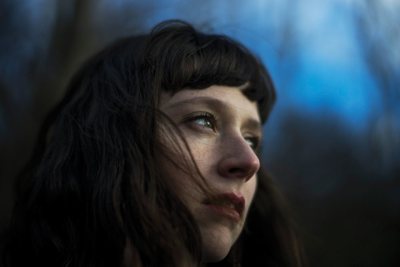
Waxahatchee
One of the most confusing — and perhaps most inciting — genres in music is a three-letter word that might as well be four: emo. It’s something we started talking about again here in Nashville when a mini “emo revival” hit us like a vigorous outbreak of West Nile (with a reaction to match). Is it more harmless than we thought? Or was it just safer to stay home, away from Dashboard Confessional’s recent five-night run at The Basement East or local DIY shows and DJ nights where the Nashville emo scene is percolating?
This new age emo from well-aged folks is perhaps most irrelevant when you consider the case of someone like Katie Crutchfield’s Waxahatchee, playing Third Man on Tuesday.
Now, let’s not discount the post-hardcore roots of emo and the bands it spurred, particularly ones that appeared on the scene in a pre-Twitter era. Back then, the genre offered a solid sonic reinforcement for our feelings at a time when we couldn’t simply wait for someone to hit “like” on our saddest status updates. Still, emo is so perplexing because it took one of the most treasured and timeless elements of music — singing about emotions, often sadness, because, let’s be honest, we all go through breakups and we all are eventually going to die, which is a bummer — and co-opted it, dressing it in Hot Topic gear and making it the biggest presence on Warped Tour. It always felt off to see suburban kids with very nice guitars take the fundamental bits of the human struggle and run with them all the way to the mall. By the mid-Aughts, the music industry was manufacturing the Velveeta of grief, mainstream rock’s dying breath, putting songsters who wrote melancholy tunes in the strange position of wondering how to make music that wasn’t called emo, but still helped people process the feelings that come along with being a person on this earth.
Of course, Nashville — and the South — has always been “emo.” Is there anything more gut-wrenching than Hank Williams’ “I’m So Lonesome I Could Cry”? Maybe not, until you dive deep into the folk blues, where artists like Lightnin’ Hopkins reside. As with many music genres and subcultures that eventually become commodified — grunge comes to mind — emo, while simultaneously developing a sonic style and an aesthetic one, also laid claim to the content of the songs. But now, engaging in communal sadness is less proprietary than ever, and it’s almost complete nonsense when packaged in the form of an “emo revival” from old-ish dudes who have to feign adolescent angst instead of live it. If social media were around when those bands got started (and, no, zero people read your LiveJournal, so it doesn’t count), maybe they would have spent their days posting bits of indulgent nostalgia in their status updates and saved those power chords for rock ’n’ roll. Let’s be honest: There’s very little space between a Hawthorne Heights lyric and your teenage cousin’s morning thoughts on Facebook. Frowning face emoji!
And that brings us back to Waxahatchee, whose third LP Ivy Tripp is often sparse and delights in the off-kilter, with lyrics that blend the confessional with the expressionist. At their core, they’re raw and honest, but not for the sake of rousing discomfort — even though the Birmingham, Ala., native sounds fine with that outcome. Crutchfield, who was born in the Yellowhammer state and now lives in in Philadelphia, intuitively synthesizes a world where everyone can blast their emotions in 140-character summaries 10 times a day into something beautifully unique. Feelings are not always worth sharing, after all, but doing so in a poetic, enlightening way is what makes art necessary.
“I left you out like a carton of milk,” Crutchfield sings in “Air,” walking the lyrics around the melody in unpredictable ways, and rousing emotion without resting on emo convention. That’s because Crutchfield is decidedly not emo — not all sad or introspective music is, just as not all songs about small towns are country songs. Even so, Crutchfield has found herself stuck with the “emo” tag more often than she’s comfortable with. In 2013, she tweeted: “I’m not fucking emo,” in response to the reception of her sophomore LP Cerulean Salt. It’s hard to blame her for wanting to reinforce the distinction. Most of the time, getting lost in the genre war is a worthless pursuit, but the millennial emo revival isn’t just different from Waxahatchee’s deal, it’s perhaps the polar opposite. The latter makes you think and feel, the former capitalizes on feelings you’re presumed to have felt. There’s a vital sense of empathy on Ivy Tripp, while emo mostly just begs for your sympathy.
Perhaps what we don’t need in a time like the present is more bands validating self-indulgent, aimless “feelings” — particularly bands that made a market of playing the “Sad Boy” role, Method-acting style.
But we do need artists like Waxahatchee to share songs not to gather likes and retweets, but to express the palette of her music. That’s probably the most emotional thing of all, anyway.
Email music@nashvillescene.com





